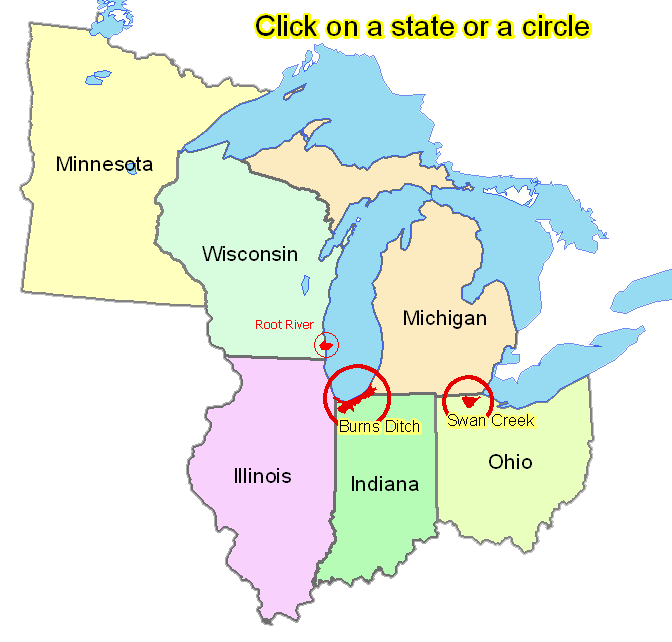![]()
Interpreting L-THIA's Results: Landscaping and Gardening
The following measures can reduce landscaping/gardening-related NPS pollution:
When landscaping yards, select plants that have low requirements for water, fertilizers, and pesticides. Cultivate plants that discourage pests.
Minimize grassed areas that require high maintenance.
Preserve existing trees, and plant trees and shrubs to help prevent erosion and promote infiltration of water into the soil. Use landscaping techniques such as grass swales, low areas in the lawn or porous walkways to increase infiltration and decrease runoff.
Install wood decking or bricks or interlocking stones instead of impervious cement walkways. Install gravel trenches along driveways or patios to collect water and allow it to filter into the ground. Restore bare patches in your lawn as soon as possible to avoid erosion. Grade all areas away from your house at a slope of one percent or more. Leave lawn clippings on your lawn so that nutrients in the clippings are recycled and less yard waste goes to landfills. If you elect to use a professional lawn care service, select a company that employs trained technicians and follows practices designed to minimize the use of fertilizers and pesticides. Compost your yard trimmings. Compost is a valuable soil conditioner which gradually releases nutrients to your lawn and garden. (Using compost will also decrease the amount of fertilizer you need to apply.) In addition, compost retains moisture in the soil and thus helps you conserve water. Spread mulch on bare ground to help prevent erosion and runoff. Test your soil before applying fertilizers. Over-fertilization is a common problem, and the excess can leach into ground water or contaminate rivers or lakes. Also, avoid using fertilizers near surface waters. Use slow-release fertilizers on areas where the potential for water contamination is high, such as sandy soils, steep slopes, compacted soils, and verges of water bodies. Select the proper season to apply fertilizers: Incorrect timing may encourage weeds or stress grasses. Do not apply pesticides or fertilizers before or during rain due to the strong likelihood of runoff. Calibrate your applicator before applying pesticides or fertilizers. As equipment ages, annual adjustments may be needed. Keep storm gutters and drains clean of leaves and yard trimmings. (Decomposing vegetative matter leaches nutrients and can clog storm systems and result in flooding.)
